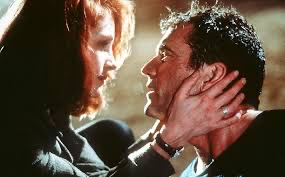I’ve been thinking a lot about bacon. Have you tried it? Holy cow is it good. Speaking of cows, hats off to steaks sizzling on a grill, prime rib, and juicy cheeseburgers. And don’t get me started on roasted lamb.
We Eastern Orthodox are in our final Lenten throes. Our liturgical calendar is different than that of Catholics and Protestants. I’m unsure why. I’ve had it explained to me many times, just as I’ve had Bitcoin and natural law explained to me many times. Some heads are just not fitted for certain knowledge. The point is, I’m glad Easter approaches, for many theological and spiritual reasons, but also because a man can only eat so much hummus.
So why fast at all? And what to teach our children about it? In The Ethics of Beauty, Timothy Patitsas writes: “…it is in the lowest part of the soul, in the appetitive powers, where the battle will be won or lost.” In other words, if we want to achieve noble, virtuous lives—and raise sons and daughters to do the same—we must subdue our passions. Fasting is a means of bringing the body, and thereby our passions, into submission.
Jackrabbit and Professor attend a little private school. It’s Montessori-based, which aims to help children become self-directed learners. Every week they’re responsible for achieving a number of goals—reading aloud so many pages, say, or completing a handwriting primer.
Jackrabbit is struggling. Week after week, he fails to complete his goals. The children who do complete their goals get to go on field trips. Jackrabbit usually has to stay behind. He tells me he has difficulty keeping his eyes off the work of the older kids. It’s not the work itself that distracts him, it’s the fact that they’re using computers. One downside of not giving your children screens is that when they do see one, even an ad for dish soap can be captivating.
On the drive to school, we talk about what he can do to guard his eyes. Which leads to a talk about battling the body. Now Professor is curious. “How can you fight your body, Papa?”
Oh man, I’d almost rather talk about Bitcoin.
I do my best to explain that some parts of our bodies—especially men’s bodies—will run the show if we let them. Men will eat themselves to death, drink themselves to death, and look at wrongful things until their minds can’t focus on anything else.
Jackrabbit wants to know if hands also want to take charge, because sometimes he can’t help but whack someone. Professor’s question is more philosophical: “But if your belly and eyes are you, why do you say that you’re not in charge?”
Your belly, your eyes, your hands are parts of you, I say. But they’re not all of you. You have a heart, and a mind, and a soul. When one part of you tries to rule over the others, it leads you into bad places.
“Like not getting my goals done,” Jackrabbit says sadly.
Think of today like you’re going into battle, I tell him. This gets his attention.
Your eyes have been running the show at school, I say. Today, see how much of the time you can make them look at what you need to focus on, instead of what they want to focus on.
“But what if I can’t?”
You won’t win the whole day, I say. But see how much you can win. Even if you just stay in charge of your eyes for five minutes, that’s five minutes you won. And tomorrow you can try for six.
“Do your eyes ever try to be in charge, Papa?” Professor asks.
Sigh. Yes, child.
You will battle the rest of your lives, I tell them, to keep charge of your bodies. Every part of them is made to do good things, but it’s up to you to make sure they do those good things.
In the school parking lot I pull their heads close to mine and pray that they’ll win their battles today. Off they bounce and stumble into their little school. Off to fight their battles, as I go to fight mine.
That afternoon, Jackrabbit finds me at my desk. His face is beaming. “Papa,” he says, “I finished all my goals. I won.”
Amen, child. Amen and amen and amen.






